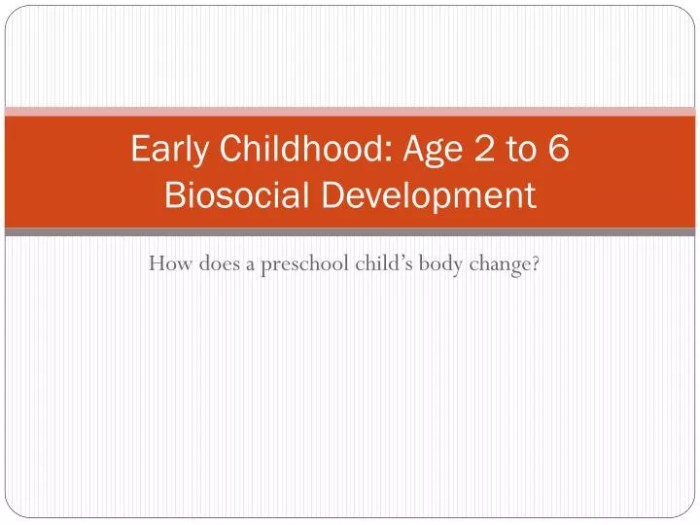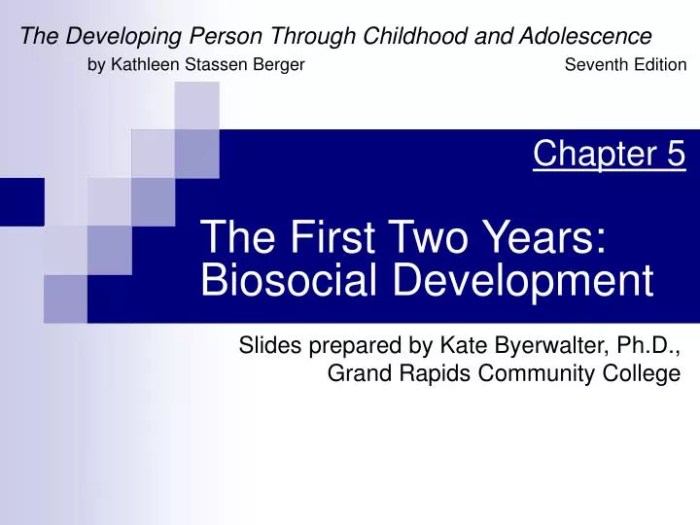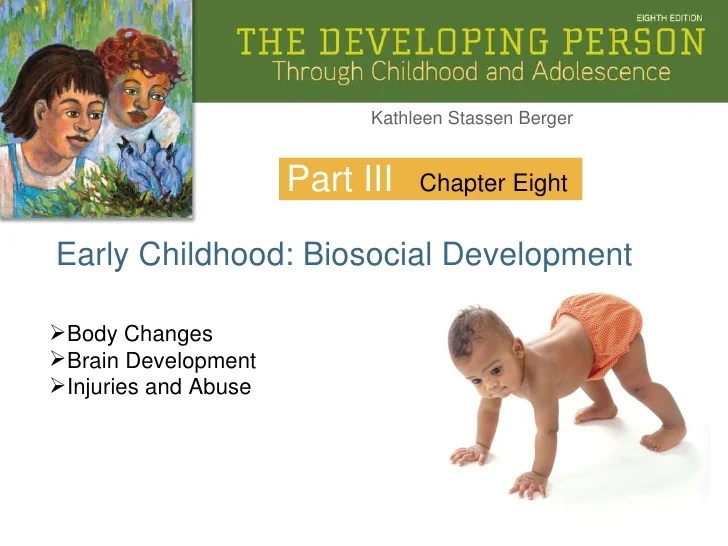Biosocial development in early childhood lays the groundwork for an individual’s lifelong physical, social, cognitive, and emotional well-being. It encompasses the intricate interplay between biological and social factors that shape a child’s development during the crucial years from birth to age five.
This developmental journey involves remarkable physical transformations, the formation of meaningful social relationships, and significant cognitive advancements. It is a period of profound emotional growth, as children learn to navigate a world of feelings and develop a sense of self.
Biosocial Development in Early Childhood: A Definition
Biosocial development encompasses the interplay between biological and social factors that shape an individual’s development during early childhood. Biological factors include genetic inheritance, physical growth, and maturation, while social factors include interactions with family, peers, and the broader environment.
Biosocial development is a complex and dynamic process that influences a child’s physical, social, cognitive, and emotional well-being. It is essential for understanding the holistic development of young children and their preparation for future success.
Physical Development and Its Impact on Biosocial Development
Physical development during early childhood includes rapid growth in height, weight, and motor skills. These changes have a significant impact on biosocial development.
- Increased mobility allows children to explore their environment and interact with others, fostering social development.
- Improved motor skills enhance children’s self-confidence and autonomy, contributing to their emotional well-being.
- Physical growth and development provide a foundation for cognitive development, as children become more capable of manipulating objects and engaging in play.
Social Development and Its Impact on Biosocial Development
Social development in early childhood involves forming relationships with family, peers, and the community. These interactions shape children’s social skills, language acquisition, and emotional regulation.
- Positive relationships with parents and caregivers provide a secure base for children to explore their environment and develop trust.
- Peer interactions teach children about social norms, cooperation, and conflict resolution.
- Language acquisition, fostered through social interactions, enables children to express their needs, thoughts, and feelings.
Cognitive Development and Its Impact on Biosocial Development

Cognitive development in early childhood encompasses rapid advancements in language, problem-solving, and memory. These changes influence biosocial development.
- Improved language skills enhance children’s ability to communicate and interact with others.
- Problem-solving abilities foster children’s independence and self-reliance.
- Enhanced memory allows children to recall and learn from past experiences, contributing to social and emotional development.
Emotional Development and Its Impact on Biosocial Development: Biosocial Development In Early Childhood

Emotional development in early childhood involves understanding and regulating emotions. This process is influenced by social interactions and cognitive development.
- Children learn to identify and express their emotions through interactions with others.
- Cognitive development enables children to understand and regulate their emotions, contributing to self-control and emotional well-being.
- Positive emotional experiences, such as love and support, promote healthy biosocial development.
Cultural Influences on Biosocial Development

Culture plays a significant role in shaping biosocial development in early childhood. Cultural norms and values influence:
- Child-rearing practices and parent-child relationships
- Social interactions and peer relationships
- Cognitive development and language acquisition
- Emotional development and self-regulation
Interventions to Support Biosocial Development in Early Childhood

Various interventions can support biosocial development in early childhood, including:
- Early childhood education programs:Provide structured opportunities for children to interact with peers, develop language skills, and enhance cognitive abilities.
- Parent education and support:Empower parents with knowledge and skills to promote their children’s biosocial development.
- Home visiting programs:Provide support and guidance to families facing challenges that may hinder children’s development.
Clarifying Questions
What is the significance of biosocial development in early childhood?
Biosocial development in early childhood establishes the foundation for lifelong health, well-being, and success. It shapes a child’s physical, social, cognitive, and emotional development, creating a holistic framework for their future growth.
How do biological factors influence biosocial development?
Biological factors, such as genetics, nutrition, and physical health, provide the raw material for development. They influence a child’s physical growth, cognitive abilities, and emotional temperament, shaping their interactions with the social world.
What is the role of social factors in biosocial development?
Social factors, including family, peers, and culture, profoundly impact biosocial development. These interactions shape a child’s social skills, language acquisition, and emotional regulation, influencing their overall development and well-being.